|
It's been a couple of months now since my job at Parliament finished - and I've been meaning to write about some of the creative outputs of my time as part of the Vote 100 team. I was part of an AHRC funded project called 'What Difference Did the War Make? World War One and Votes for Women' run by the University of Lincoln and UK Parliament Vote 100 alongside the University of Plymouth. The project outputs included three panel events in Lincoln, Plymouth and London discussing not only the project topic but the work and legacy of past and present female Members of Parliament, alongside workshops for young people, and an exhibition in Parliament and online. You can see that exhibition here: www.parliament.uk I'm not going to talk about those outputs in this blog post though. Instead this is a brief introduction to some of the other outputs involving project research that happened over the course of my year there - outputs I'm really excited about and that reached out to different audiences in different spaces. There's music, games, theatre, and sweets! The first thing was being part of the development and delivery of a MOOC (Massive Open Online Course)from Royal Holloway, University of London and UK Parliament and made available on the Future Learn platform. As part of the Vote 100 team, I contributed video and written content about the Actresses' Franchise League, the response of suffrage societies to the outbreak of war, the work of women during WW1, and corresponding documents within the Parliamentary Archives. You can find out more about Beyond the Ballot here - it's free to sign up and will be running again later in 2018. Working with the fantastic team from Royal Holloway led to another opportunity - helping to plan elements of their annual Festival of History, which happened on the 3rd June. I shared some of my research into the activities organised by the Men's Political Union for Women's Enfranchisement for a WSPU fair in 1911 - and the Royal Holloway team were inspired by them for their Festival, creating amongst other entertainments suffrage coconut shies and a suffrage hook-a-duck game to engage families outdoors on the day. Another performative output was a Living Literature walk called 'Women and War: The West End and the Western Front' that I developed with feminist production hub Scary Little Girls, our second collaboration for the Being Human Festival. For the 2016 Being Human Festival we had devised a walk around the site of the Shakespeare Hut in Bloomsbury, and focused on the experiences of ANZAC soldiers in that space during WW1. The Women and War walk, part of the 2017 Festival, used extracts from plays written and performed during WW1, as well as new material based on archive research, in a variety of site specific locations. I'll write more about this in a separate blog post, but you can find a review of the walk from the British Theatre Guide here, and some pictures below of the actors Cavin Cornwall and Kiruna Stamell. These next two outputs have been more successful than I could have hoped - votes for women sweeties and the 'Race to Equal Votes' tablecloth board game for Parliament's Equaliteas initiative. The pic below left is of me plugging both in Portcullis House, encouraging MPs and staff of both Houses to stop and chat about the project exhibition, and the board game! I got the sweets made for the final project event - they were pear drop flavoured rock sweets with the colours of the three most well known suffrage societies around the outside. Purple, green and white for the WSPU, green and gold for the WFL and red, white and green for the NUWSS, with 'Votes for Women' in black written on them. They proved enormously popular both on the day and afterwards - and were re-ordered by many other departments! If you would like to order some and want the details get in touch and I'll email them to you. The board game was an idea I had been thinking about for a long time, and when the opportunity came up to pitch it to the Equaliteas team in their planning stages I was delighted that they wanted to take it forward! The game takes players from 1866 and the first mass petition for women's suffrage to 1928 and the granting of the equal franchise. I worked with the Equaliteas team, a game designer, graphic designers and a writer to develop the game, keep it both simple and also as research led as possible in the design of the timeline on the board, the steps of the game play and the quiz and campaign questions. Once the final design and game play was finalised, thousands of copies were made and are being played this month at thousands of Equaliteas being held up and down the country. I'm so honoured to be part of making learning about the suffrage movement accessible and fun in this way - and delighted that people seem to be enjoying it! As far as I know it's the first suffrage themed game that includes both non-militant and militant societies, and that takes in the full campaign from 1866-1928. If you are interested, then it's not too late to sign up and get one for free as part of the Equaliteas pack - more info here! And finally, for now, one really exciting aspect of the project was the chance to work with singer and songwriter Louise Jordan. She's been touring her album 'No Petticoats Here' about women in WW1 and I had been wanting to collaborate with her for a while. Some Public Engagement funding became available at the University of Lincoln and I seized the opportunity to get her involved in the What Difference Did the War Make project. Her song 'Sooner or Later', written for the project and based on the 1917 Women's Suffrage Deputation to Lloyd George, held in the Parliamentary Archives, can be heard below. She performed it live at the final project event in January 2018. You can download an mp3 of the song and the words and music via the project page on the Parliament website: www.parliament.uk/whatdifference That's it for now - I'll write more about the Women and War walk in another post. A quick shout out to the fantastic writer and performer Hannah Davies who is making a new piece of work about women MPs called 'Maiden Speeches'. She came to Lincoln with director Eleanor Rhode for the second project event to run a workshop for young people, and performed her wonderful poem 'Maiden Speeches/Maiden Spaces' at the final project event in Westminster in January 2018.
I really appreciated working on the 'What Difference Did the War Make?' project with academics and colleagues interested in developing new public engagement opportunities for the research that reached out in different ways to new audiences, and was very glad to have their support when pitching new ideas like the song, the sweets, the living literature walk, and the game. If you are interested in finding out more about the project you can see the online exhibition at www.parliament.uk/whatdifference and there will be videos of the panel discussions out later in the year.
0 Comments
Leave a Reply. |
NaomiThoughts, reflections, bits of research Archives
April 2023
Categories
All
|
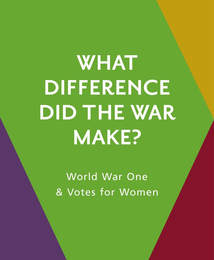
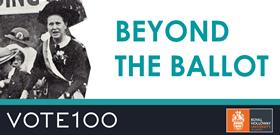
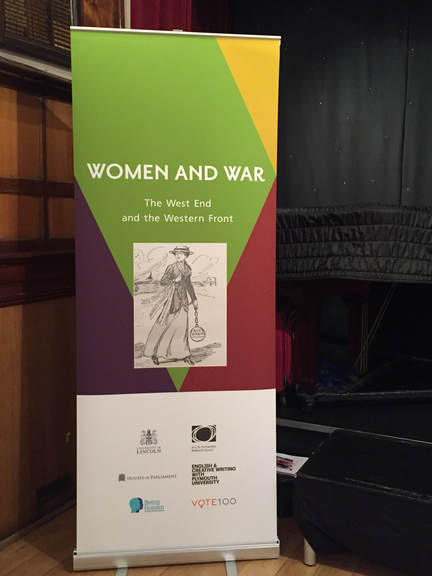
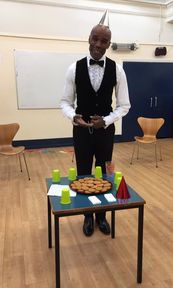
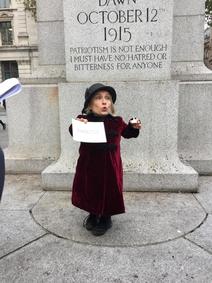
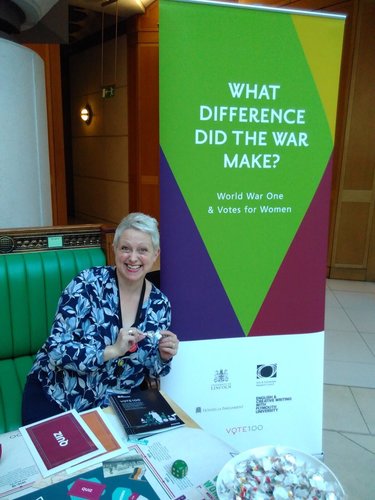
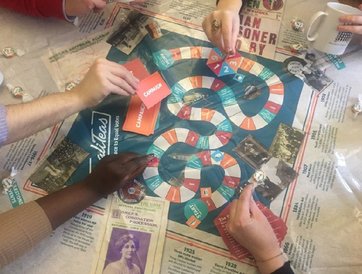
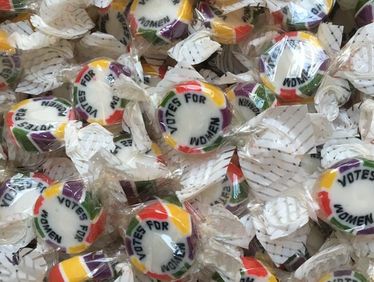
 RSS Feed
RSS Feed